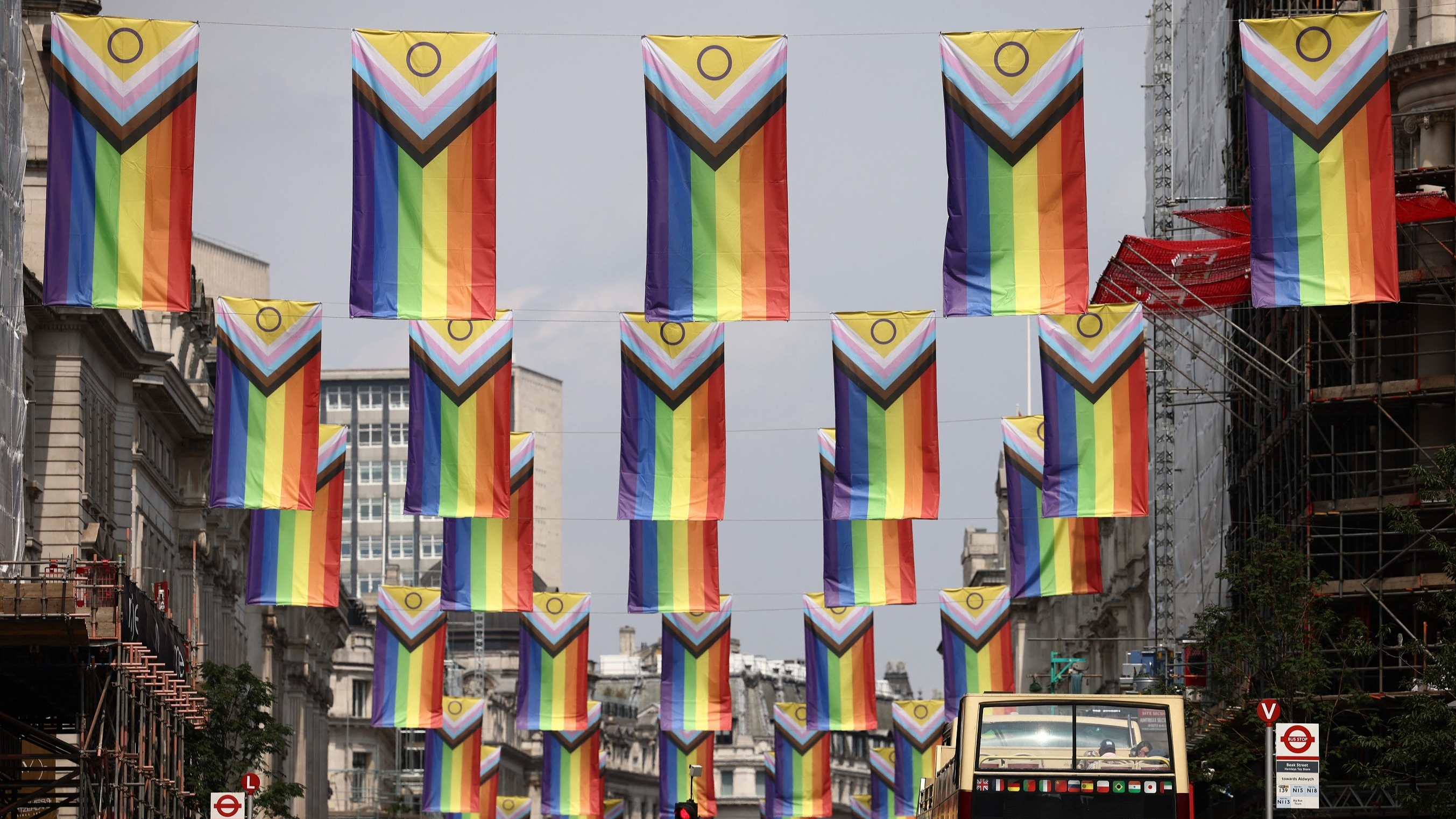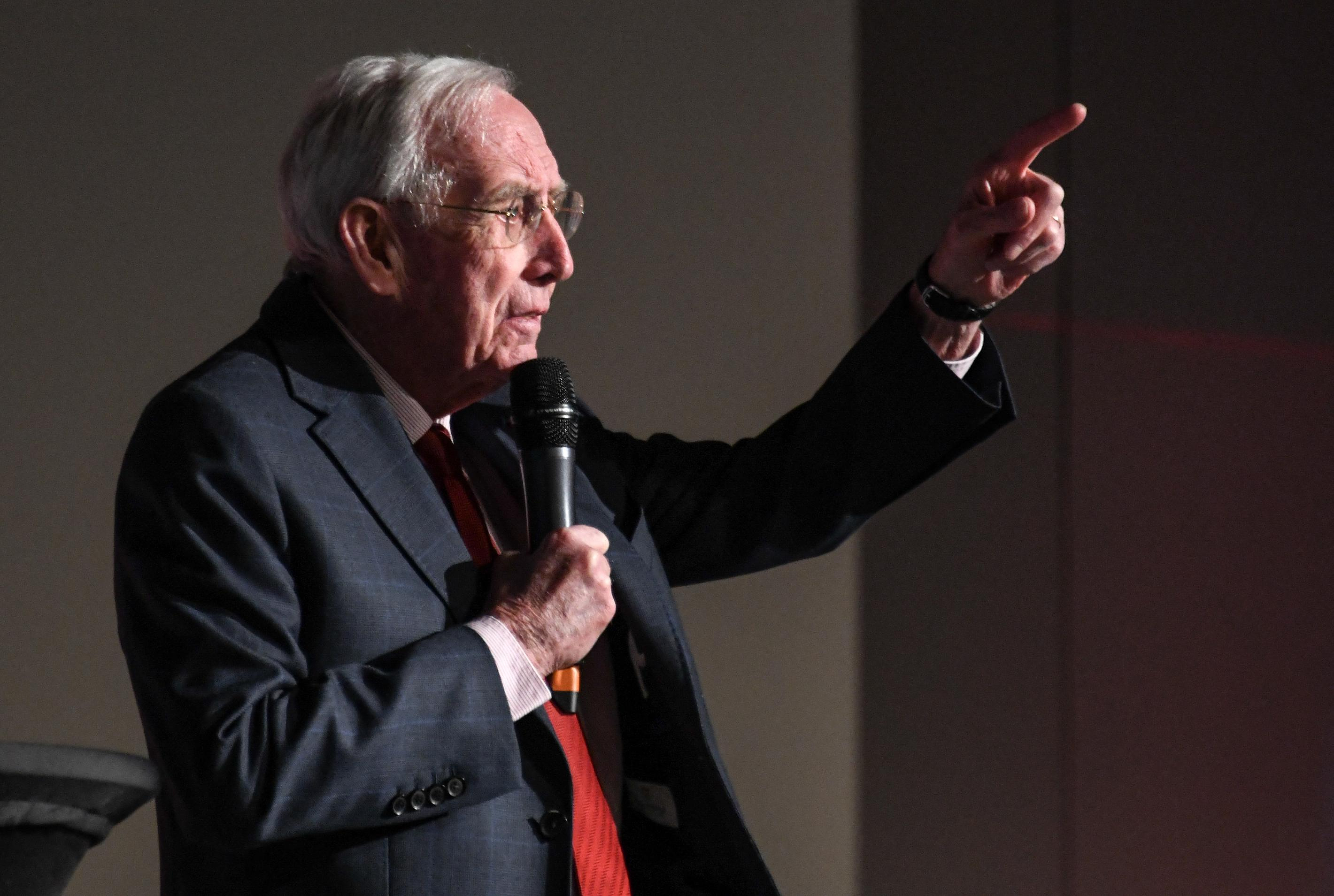The World Health Organization (WHO) wants to develop a list of recommendations to “improve transgender people’s access to quality and respectful healthcare.” The United Nations public health agency announced at the end of December that it would bring together at its headquarters in Geneva, from February 19 to 21, 2024, a college of 21 experts who will work on drafting these recommendations. This initiative is jointly carried out by three departments within the WHO, respectively in charge of gender equality and inclusion, the prevention of sexually transmitted diseases, and reproductive health research.
“These recommendations will be centered around five themes,” says the WHO: care enabling gender transition, including taking hormones; training of health personnel who administer this care; support for trans people who are victims of violence because of their gender identity; health policies allowing the inclusion of gender diversity; and legal recognition of the right to self-determination of one’s gender.”
A gender transition can take several forms: social (being called by another first name, asking to be “gendered” differently in daily life interactions), administrative (changing first name and sex in civil status) or medical (puberty blockers, hormonal treatments, surgery of the chest or genitals).
However, the medical field is faced in several countries with an increase in requests for transition, accompanied by a rise in the demands of trans movements, which denounce conditions of access that are too difficult to transition pathways. Transactivist activists are calling for two things in particular: to be more involved as actors in health decisions relating to trans people, and to obtain the complete depathologization of transition pathways. In their eyes, the caution of health professionals (psychologists, endocrinologists, gynecologists, surgeons, etc.) confronted with patients who wish to transition constitutes “gate-keeping”, an obstacle to the free choice of trans people, which should be done jump at all costs.
It is already in this context that a decision taken by the WHO in 2019 constituted a first victory for trans associations: the eleventh revision of the International Classification of Diseases (ICD-11), which entered into force on January 1, 2022. , took “gender incongruence” out of the field of mental and behavioral disorders, to classify it as a sexual health condition. Furthermore, since 1979, WPATH, the World Professional Association for Transgender Health, has published and updated a set of care recommendations that trans activists intend to impose on the medical authorities of each country. These standards are centered on the idea of self-determination: trans people would be best able to decide what care should be provided to them, and any refusal from doctors would risk worsening their discomfort.
Also read Gender transition: how trans activists infiltrated the High Health Authority
This new work by the WHO aims to go further in the recommendations made to States, to harmonize the medical care of trans people, in particular throughout their transition journey.
The initiative is very similar to that carried out at the same time in France, under the aegis of the High Authority of Health (HAS), which appointed a working group to produce recommendations on the same subject. Le Figaro also revealed in June that practically all the experts contacted by the HAS largely adhere to the theses of the transactivist movements. But unlike the HAS which had refused (and still refuses, despite the revelations in Le Figaro followed by a binding decision from the administrative court) to reveal the composition of this working group, the world organization is much more transparent than the institution French. Thus the WHO communicated the names and biographies of its 21 experts, specifying that they were selected among the researchers whose expertise is the most relevant, but also among the representatives of the health professions concerned, and among the users , that is to say trans people and the associations that represent them.
However, the communication of this list of experts, as well as the conditions under which they must meet, has caused several other associations to jump, which are campaigning, on the contrary, for a more cautious approach to issues linked to gender transition.
This is particularly the case of the Society for Evidence-based Gender Medicine (SEGM), an international association bringing together around a hundred doctors and researchers denouncing the lack of scientific guarantees surrounding hormonal or surgical interventions for trans people. This collective deplores the “biased composition” of the WHO panel of experts, but also a public consultation carried out in too short a time and therefore, ultimately, “a rushed process of developing recommendations”. In a letter addressed to the WHO, doctors and researchers regret that the vocabulary used by the WHO is not neutral, because the stated aim of the experts' work is to facilitate access to gender transitions, and to encourage States to allow “self-determination of gender identity”.
The SEGM adds that countries are moving forward in disparate order on this subject: some of them, such as the United Kingdom, Sweden and Finland, have adopted precautionary rules which will be incompatible with WHO recommendations, and will override the advice of experts. Other countries, on the contrary, for lack of having carried out work based on a scientific and medical approach, will be more vulnerable to the militant biases of the WHO, affirm the members of the association.
The SEGM is not alone in its alarm: British and Irish clinicians have also written to the WHO to the same effect, under the aegis of a network of doctors concerned about these issues, the Clinician Advisory Network on Sex and Gender.
In France, Belgium and Switzerland, these specialists were joined by the Little Mermaid Observatory, a collective chaired by child psychiatrist Caroline Eliacheff and psychoanalyst Céline Masson, who also wrote to the WHO. An international petition has to date gathered more than 11,000 signatures from associations or personalities concerned by the WHO initiative.
The signatories once again denounce the deadline given to researchers from around the world (barely three weeks) to communicate their observations to the WHO, and reiterate their criticism of a college of experts whose composition does not reflect not, in their eyes, the plurality of approaches to the subject of gender transition.
Also read: A gynecologist attacked for refusing to examine a trans woman
“Of the 21 experts chosen by the WHO, 7 are trans people,” observes Caroline Eliacheff. And in total, 16 are transactivist activists, while none have a critical voice on the trans-affirmative approach to the subject. This college of experts does not represent the state of the current controversies raised by this approach. Above all, none of the countries which have opted for alternative paths to the trans-affirmative approach are represented in this group!”
In detail, the WHO panel of experts brings together 16 members out of 21 with an activist commitment (past or current) to transactivist associations: the lawyer Apako Williams (Tranz Network Uganda), Ayouba El Hamri (African Trans Network and WPATH), Chris McLachlan (WPATH), Cianán Russell (ILGA), physician Elma de Vries (Professional Association for Transgender Health in South Africa), Erika Castellanos and lawyer Eszter Kismödi (both at Global Action for Trans Equality), psychiatrist Gail Knudson (WPATH), Rena Janamnuaysook (Thai Transgender Alliance), pediatrician Sanjay Sharma (parent of a transgender child and activist at the Association for Transgender Health in India), doctor Shobini Rajan (India Transgender Health Agenda), Teddy Cook (TransHub, ACON), psychology professor Walter Bockting (ex-president of WPATH), physician Walter Bouman (also ex-president of WPATH and founding member of EPATH ), Yanyan Araña (Philippine Professional Association for Transgender Health) and Zakaria Nasser (Trans and Queer Feminist Organizations).
To which is added the jurist Florence Ashley, openly transgender like six of the aforementioned activists, and fervent critic, in her academic work at the Alberta Faculty of Law, of public policies aimed at limiting the use of gender transitions. A graduate in pharmacology and former official of the Ministry of Health in Brazil, Alicia Krüger is officially a consultant for the Federal Council of Pharmacists, in Brazil, on health matters for “LGBTQIAPN people” (sic). Advisor to the Minister of Health of Mozambique, Felisbela Maria de Oliveira Gaspar works with public authorities for better inclusion of gender diversity in the health system, as part of the prevention of AIDS and sexually transmitted diseases. Director in Vietnam of the administration responsible for the fight against AIDS, Phan Thi Thu Huong has participated in numerous works on gender inclusion, and in particular on broadening access to gender transitions in Vietnam.
Only pediatrician Saima Paracha, member of the national AIDS program in Pakistan, seems to have not participated so far in work aimed at facilitating access to gender transitions.
Another surprise, only 7 of the 21 experts are representatives of Western countries, the others all coming from Southern countries, in which the question of access of trans people to the health system arises in different terms than in the countries the most developed in the world.

 Poland, big winner of European enlargement
Poland, big winner of European enlargement In Israel, step-by-step negotiations for a ceasefire in the Gaza Strip
In Israel, step-by-step negotiations for a ceasefire in the Gaza Strip BBVA ADRs fall almost 2% on Wall Street
BBVA ADRs fall almost 2% on Wall Street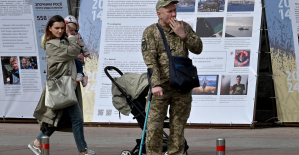 Ukraine has lost 10 million inhabitants since 2001... and could lose as many by 2050
Ukraine has lost 10 million inhabitants since 2001... and could lose as many by 2050 Sánchez cancels his agenda and considers resigning: "I need to stop and reflect"
Sánchez cancels his agenda and considers resigning: "I need to stop and reflect" The Federal Committee of the PSOE interrupts the event to take to the streets with the militants
The Federal Committee of the PSOE interrupts the event to take to the streets with the militants Repsol: "We want to lead generative AI to guarantee its benefits and avoid risks"
Repsol: "We want to lead generative AI to guarantee its benefits and avoid risks" Osteoarthritis: an innovation to improve its management
Osteoarthritis: an innovation to improve its management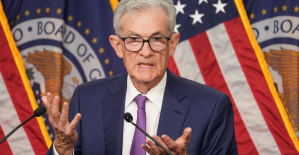 The Fed maintains its rates in the face of “lack of progress” on the inflation front
The Fed maintains its rates in the face of “lack of progress” on the inflation front Microsoft announces investment of 2.05 billion euros in AI and cloud in Malaysia
Microsoft announces investment of 2.05 billion euros in AI and cloud in Malaysia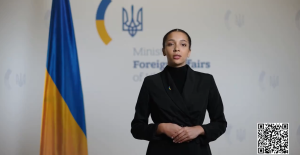 Ukraine gets a spokesperson generated by artificial intelligence
Ukraine gets a spokesperson generated by artificial intelligence The French will take advantage of the May bridges to explore France
The French will take advantage of the May bridges to explore France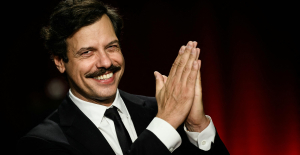 Actor Laurent Lafitte leaves the Comédie-Française
Actor Laurent Lafitte leaves the Comédie-Française Death of Paul Auster: Actes Sud says he is “lucky” to have been his publisher in France
Death of Paul Auster: Actes Sud says he is “lucky” to have been his publisher in France Lang Lang, the most French of Chinese pianists
Lang Lang, the most French of Chinese pianists Author of the “New York Trilogy”, American novelist Paul Auster has died at the age of 77
Author of the “New York Trilogy”, American novelist Paul Auster has died at the age of 77 Omoda 7, another Chinese car that could be manufactured in Spain
Omoda 7, another Chinese car that could be manufactured in Spain BYD chooses CA Auto Bank as financial partner in Spain
BYD chooses CA Auto Bank as financial partner in Spain Tesla and Baidu sign key agreement to boost development of autonomous driving
Tesla and Baidu sign key agreement to boost development of autonomous driving Skoda Kodiaq 2024: a 'beast' plug-in hybrid SUV
Skoda Kodiaq 2024: a 'beast' plug-in hybrid SUV The home mortgage firm rises 3.8% in February and the average interest moderates to 3.33%
The home mortgage firm rises 3.8% in February and the average interest moderates to 3.33% This is how housing prices have changed in Spain in the last decade
This is how housing prices have changed in Spain in the last decade The home mortgage firm drops 10% in January and interest soars to 3.46%
The home mortgage firm drops 10% in January and interest soars to 3.46% The jewel of the Rocío de Nagüeles urbanization: a dream villa in Marbella
The jewel of the Rocío de Nagüeles urbanization: a dream villa in Marbella Europeans: a senior official on the National Rally list
Europeans: a senior official on the National Rally list Blockade of Sciences Po: the right denounces a “drift”, the government charges the rebels
Blockade of Sciences Po: the right denounces a “drift”, the government charges the rebels Even on a mission for NATO, the Charles-de-Gaulle remains under French control, Lecornu responds to Mélenchon
Even on a mission for NATO, the Charles-de-Gaulle remains under French control, Lecornu responds to Mélenchon “Deadly Europe”, “economic decline”, immigration… What to remember from Emmanuel Macron’s speech at the Sorbonne
“Deadly Europe”, “economic decline”, immigration… What to remember from Emmanuel Macron’s speech at the Sorbonne These French cities that will boycott the World Cup in Qatar
These French cities that will boycott the World Cup in Qatar NBA: Boston will see the semi-finals, the Clippers one step away from elimination
NBA: Boston will see the semi-finals, the Clippers one step away from elimination Paris 2024 Olympic Games: “It would have been an incredible honor”, Rudy Gobert will ultimately not be flag bearer
Paris 2024 Olympic Games: “It would have been an incredible honor”, Rudy Gobert will ultimately not be flag bearer Champions League: Dortmund coach praises Jadon Sancho, author of a great performance against PSG
Champions League: Dortmund coach praises Jadon Sancho, author of a great performance against PSG Football: a goal from Georges Mikautadze broadcast...in Times Square
Football: a goal from Georges Mikautadze broadcast...in Times Square